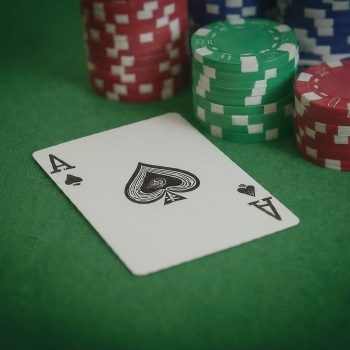
Understanding Casino Superstitions
The casino world is not just about high stakes and strategy; it’s also a realm where superstitions and rituals play a huge role. Some of the best mobile casinos Canada and smaller casino studios alike take all of that in mind when developing their next game or designing a bonus ad.
From the way we cast the dice to the way we choose casino welcome bonuses, our psyche is subtly governed by less-rational parts of our brain. Let’s find out how even the most logical people can turn superstitious when it comes to winning big.
Casino Superstitions: Lucky and Unlucky Numbers
Superstitions around numbers are widespread in casinos. The number 13, for instance, is notoriously known as an omen of misfortune in Western culture. You’ll often find gamblers steering clear of betting on 13 at roulette tables.
In a survey conducted by the National Gambling Impact Study Commission, it was found that 13% of people would be less likely to bet on a horse if it was number 13. Logically, the number has no impact on the horse’s performance, yet the people still persisted in their mindset.
In contrast, the number 7 is widely considered lucky in many cultures, and you’ll often find slot machines and games themed around this number. According to a study by the Gaming Research Center, slot machines with the number 7 in their title had a 25% higher play rate than average.
Unlucky Numbers in Other Cultures
In Asian cultures, it’s the number 4 that’s avoided due to its phonetic similarity to the word for death in Mandarin. Meanwhile, the number 7 is often embraced in slot machines, seen as a harbinger of good luck.
Red for Riches: Lucky & Unlucky Colours Around the World
In Chinese culture, red symbolises good fortune and wealth. This belief has seeped into the casino floors, where many players don red clothing or accessories in hopes of attracting prosperity. Some even opt for red underwear as a discreet nod to this superstition.
Just as the colour red is seen as lucky, other colours are often avoided. For instance, some players steer clear of black attire, associating it with bad luck or loss. This belief varies widely across cultures and individual players, with each gambler often having their own set of lucky or unlucky colours.
The $50 Bill Jinx
In the US, the $50 bill is often regarded with suspicion among gamblers. This dates back to the era when mobsters ruled Las Vegas, and $50 bills were associated with misfortune, as gangsters were rumoured to bury their victims with a $50 bill in their pockets.
Physical Gestures and Rituals
Physical tics and gestures are also part of the casino’s superstitious fabric. For instance, crossing your legs while gambling is thought to block good energy and luck. Conversely, in some cultures, itchy hands are seen as a sign – an itchy left palm might indicate incoming wealth, making it a good day for a casino visit.
Counting and Lending Money: A Superstitious Faux Pas
Counting your money at the table is often frowned upon, stemming from a belief that it’s bad luck to tally your chips during a game. Lending money to other players is also seen as a risky move, not just financially but also in terms of attracting bad luck to your own games.
This belief is so ingrained that it even found its way into the famous Kenny Rogers song, “The Gambler”:
You never count your money when you’re sittin’ at the table
There’ll be time enough for countin’ when the dealing’s done.
The Entrance Ritual
Some gamblers believe the way you enter a casino can influence your luck. A popular superstition, particularly among Asian gamblers, is to avoid the main entrance. This stems from a belief in Feng Shui and the flow of positive energy. Instead, they choose a less conspicuous side entrance, hoping to bring good fortune discreetly.
Mirror Avoidance
Mirrors in casinos, especially near gaming tables, are often seen as bad luck. Some players believe that mirrors can reflect away good luck or are used by the casino to distract players. This belief leads many to choose tables and machines strategically placed away from mirrors.
Lucky Charms and Talismans
Many players bring along lucky charms or talismans, believing these objects will increase their chances of winning. These can range from simple objects like a lucky coin or a rabbit’s foot to more personal items imbued with sentimental value. Each charm holds a special meaning to the player, often tied to past successes or family traditions.
Choosing the Right Dealer
Some gamblers believe that their success can be influenced by the dealer and will choose their tables accordingly. They might look for a dealer who appears lucky or friendly, avoiding those who seem to have a streak of bad luck. In some cases, players might even avoid tables where the dealer is a person they consider to be unlucky.
Embracing Casino Superstitions
While these superstitions may seem quirky, they’re deeply embedded in the fabric of the gambling culture. They represent a fascinating intersection of luck, belief, and the human desire to find patterns and control in a world ruled by chance.
Whether you’re a believer or a sceptic, these superstitions add a unique flavour to the casino experience, blending tradition with the thrill of the game.